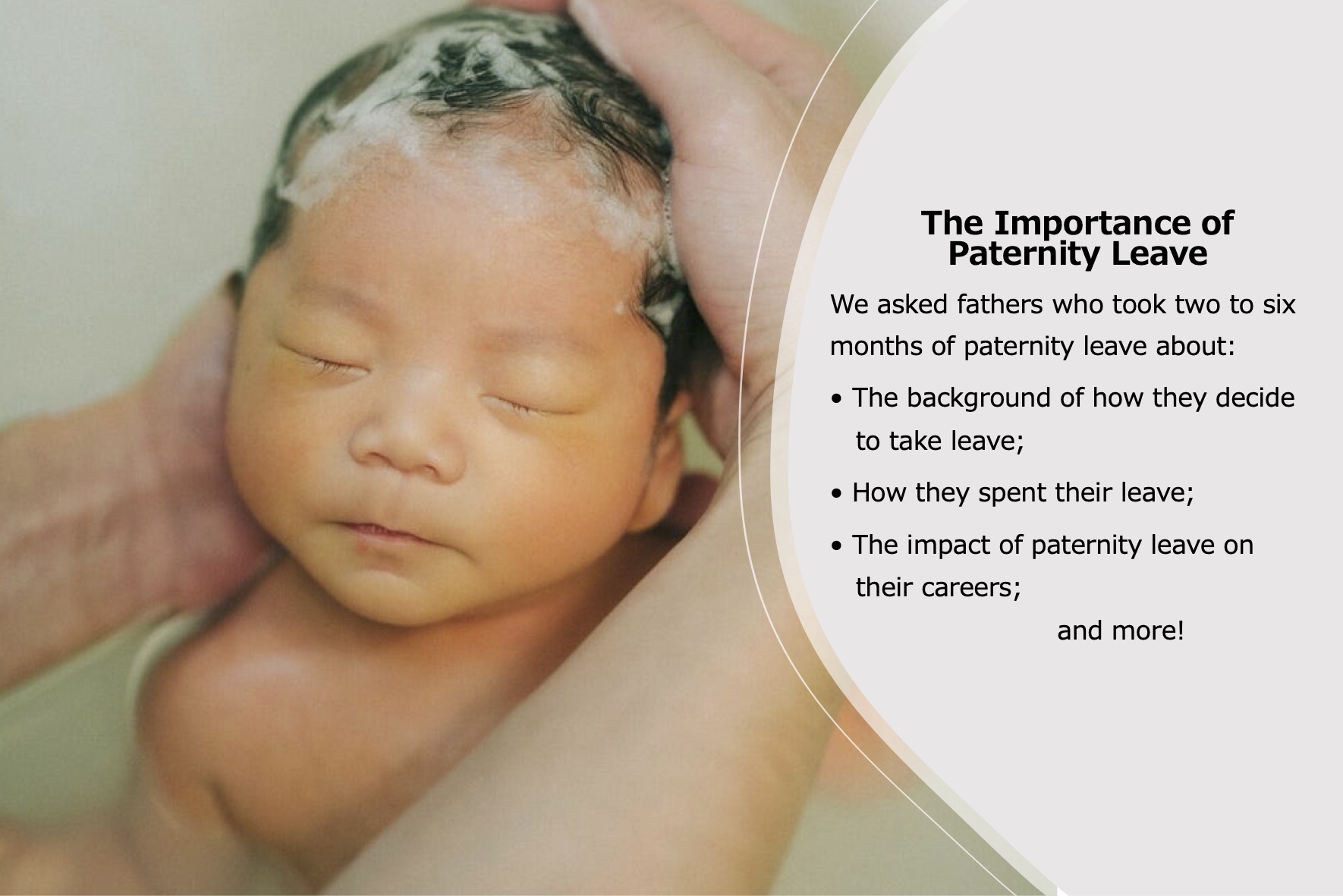Changing Jobs During the Pandemic - From Corporate Sales at a Travel Agency to ︎Testing at an IT Company

[Notice] Effective October 1, 2023, LINE Fukuoka has changed its company name to LY Communications. Articles published on or before September 30, 2023 were written with our former company name.
During the COVID-19 pandemic, an increasing number of people are moving to the IT industry from other fields. At LINE Fukuoka, the number of applicants for job listings with the "remote work" tag that don't require experience have also risen by 2.5 times compared to 2020, so the growing trend seems to be people without experience changing careers to the IT field.
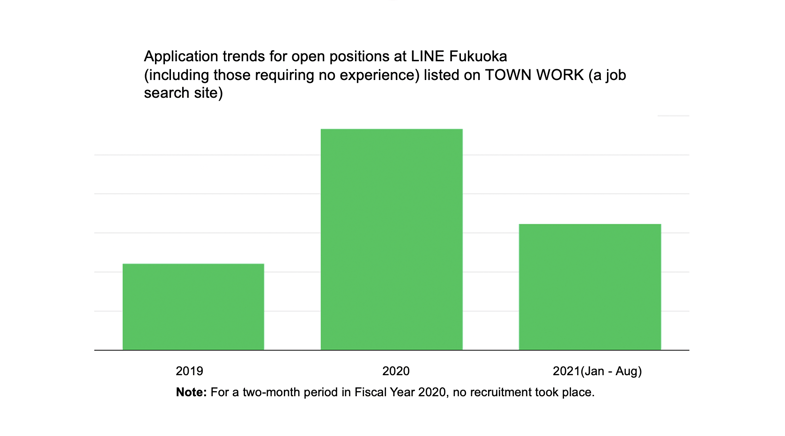
In this interview, we sat down with Ms. Erika Muko. She changed careers from corporate sales at a travel agency and joined LINE Fukuoka as a tester¹ with no experience.
If you're hoping to enter the IT industry but feel like you're coming up against some hurdles, we hope this article helps you out.
If you're hoping to enter the IT industry but feel like you're coming up against some hurdles, we hope this article helps you out.
¹Testers are the people responsible for performing tests to find any bugs in a program that's currently in development
―What did you do before joining LINE Fukuoka?
Muko:I moved to Tokyo with the hopes of becoming a voice actress. For three years, I worked part-time at an IT firm in sales and smartphone repair while going to a training school.
After that, I came back to Fukuoka and started working at a travel agency in corporate sales. My duties included things like arranging plane tickets and accommodations for customers on business trips.
―Please tell us what made you consider changing careers to the IT industry.
Muko:We were receiving a lot of cancelations for travel and business trips due to the pandemic, and with no end in sight, I started to think, "I want a job that's not susceptible to an infectious disease."
I tried searching for a job that would let me build some specialized skills, but on top of there already being few open positions due to the pandemic, I was getting married at the time I was looking, which was another hurdle... Even if I got to the interview stage, I was asked questions like, "If you're getting married, you'll need to do housework, so you can't work overtime, right?" or, "Do you have plans to have kids soon?" and was told things like, "Actually, we were looking for a male employee."
I want to continue working even if where I am in my life changes because of marriage or having children, and I figured that maybe if I entered the IT industry, the mindset would be more progressive and it might be easier to work in as a woman, so I set my sights on that.

―It's interesting that you chose to become a tester, which gets less recognition compared to positions like web designer and engineer. Please tell us why you decided to become a tester.
Muko:Actually, before I was looking at becoming a tester, I did consider web design and engineering.
But even if a company hires someone with no hands-on experience for those positions, most won't accept someone who doesn't at least have knowledge of the field.
But even if a company hires someone with no hands-on experience for those positions, most won't accept someone who doesn't at least have knowledge of the field.
My friends who are web designers studied at specialized schools, and when I tried to apply for "no experience required" positions at other companies, I was rejected because I don't have any programming knowledge. (Laughs)
―That's true. Changing careers to a position like web designer or engineer that require specialized skills with no experience is quite an obstacle to overcome. Were you aware of the tester position even before you applied?
Muko:When I was working in sales at an IT company, I had heard of the position. I was determined to land a job in the IT field despite my lack of experience, and my interviewer told me I could learn what I needed to know on the job even if I didn't have experience.
I also heard about how the work uses smartphones and that I could utilize my smartphone repair experience, so I decided to become a tester.
I also heard about how the work uses smartphones and that I could utilize my smartphone repair experience, so I decided to become a tester.
―We've heard that your studies and experience are mostly in humanities fields; were you worried about changing to the IT industry?
Muko:I was so worried! (Laughs) So I researched any information about testers I could find online, studied what they do, and also read the LINE Fukuoka blog.
The tester article that was uploaded in March of last year was a really great reference for me to learn about the job.
The tester article that was uploaded in March of last year was a really great reference for me to learn about the job.

―What did you think about being a tester after becoming one?
Muko:Even without experience, it was easier work than I had expected before joining the company.
The main duty of a tester is to use smartphones and PCs in tests to find any bugs in a service. If you're a regular smartphone user that enjoys playing with apps, I don't think there's anything to be worried about.
The main duty of a tester is to use smartphones and PCs in tests to find any bugs in a service. If you're a regular smartphone user that enjoys playing with apps, I don't think there's anything to be worried about.
─Did you struggle with anything or hit any walls changing to a career you don't have experience in?
Muko:Lots! First, remembering all of the technical jargon for each service was tough. For testing, we also have to learn functional terminology for services we aren't in charge of, so at first I was totally lost.
Getting a hang of the service specs is also difficult. We read design documents and then have to imagine what kind of service it is, but that's difficult, and I'm still searching for the best way to do it.
Additionally, we have to try actions that the developers didn't anticipate to find bugs, so keeping an open mind is important, which is something else I'm still working on. For example, if we're testing whether or not entering text will cause an error, it may be fine if you enter normal text, but entering an emoji might lead us to finding a bug. Changing your train of thought like that is tough!
When a bug you found gets fixed and the service works smoothly on release, it's really rewarding.
Getting a hang of the service specs is also difficult. We read design documents and then have to imagine what kind of service it is, but that's difficult, and I'm still searching for the best way to do it.
Additionally, we have to try actions that the developers didn't anticipate to find bugs, so keeping an open mind is important, which is something else I'm still working on. For example, if we're testing whether or not entering text will cause an error, it may be fine if you enter normal text, but entering an emoji might lead us to finding a bug. Changing your train of thought like that is tough!
When a bug you found gets fixed and the service works smoothly on release, it's really rewarding.
―Please tell us what you're doing to take your work to the next level and how you're challenging yourself.
Muko:I'm secretly stealing techniques from people who joined the company before me to get better at understanding service design and testing. (Laughs) I'm also taking the initiative to study testing techniques, and in order to step up my game, I'm working to get certifications.
My career goal is to become a test leader that supervises testers. Recently, I've also been given chances here and there to get experience in test leader work.
I want to continue learning and challenging myself so I can increase my market value in the IT industry even further.
My career goal is to become a test leader that supervises testers. Recently, I've also been given chances here and there to get experience in test leader work.
I want to continue learning and challenging myself so I can increase my market value in the IT industry even further.

―You previously mentioned that one reason you aimed for an IT job was that you thought it would be "easier to work in as a woman," but how do you feel after starting in the field?
Muko:Both men and women are excelling in their fields, and some of my coworkers are also raising children while working, so I feel like LINE Fukuoka is a company where you can continue to work even if your life changes.
In my department, we're flexibly using both remote and in-office working arrangements.² So I tell my husband that if we have a child and they suddenly develop a fever, I'll have real peace of mind knowing I can be by their side thanks to the work-from-home arrangements.
The team also has a culture of covering for each other, so it's easy to take time off. My husband's "weekends" aren't on Saturday and Sunday, but I can accommodate his schedule by taking paid leave, which is something I'm thankful for.
Also, if I've finished my work and have nothing to do, there's no pressure to stay at the office just because not everyone's finished, so it's easy to maintain a healthy work-life balance.
In my department, we're flexibly using both remote and in-office working arrangements.² So I tell my husband that if we have a child and they suddenly develop a fever, I'll have real peace of mind knowing I can be by their side thanks to the work-from-home arrangements.
The team also has a culture of covering for each other, so it's easy to take time off. My husband's "weekends" aren't on Saturday and Sunday, but I can accommodate his schedule by taking paid leave, which is something I'm thankful for.
Also, if I've finished my work and have nothing to do, there's no pressure to stay at the office just because not everyone's finished, so it's easy to maintain a healthy work-life balance.
²Based on a comprehensive evaluation of the type of information handled in the course of work, its treatment, and if the proper security measures are taken, permission to work from home may be granted.
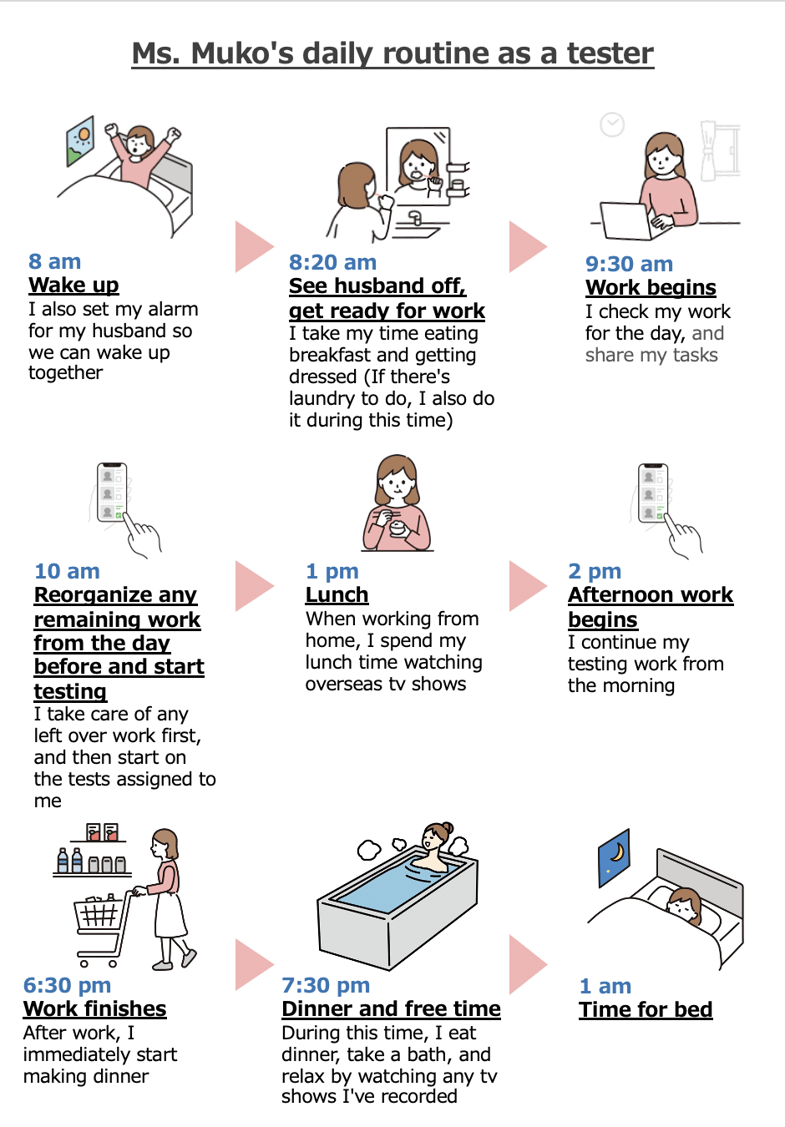
―Please tell us any advice you have for others like yourself who are inexperienced and want a different career in the IT field!
Muko:I think a lot of people are stuck on the step of being interested, but aren't sure if they can actually do it. The work that testers do utilizes tools like smartphones and PCs that everyone is familiar with, so even if you don't have experience there's no need to worry.
This position lets you utilize your previous experience. For example, if you originally worked with a content delivery service, it might be easy for you to find bugs in LINE LIVE, and if you worked in finance you may be able to use that knowledge to contribute by making our FinTech services easier to use. User perspective is crucial, so everyone can utilize their own unique experience.
Why not just try applying and listening to what the interviewers have to say? Just like how someone pushed me in the right direction because of my phone repair experience, your own skills or experience could be the key to a new career that you never imagined.
This position lets you utilize your previous experience. For example, if you originally worked with a content delivery service, it might be easy for you to find bugs in LINE LIVE, and if you worked in finance you may be able to use that knowledge to contribute by making our FinTech services easier to use. User perspective is crucial, so everyone can utilize their own unique experience.
Why not just try applying and listening to what the interviewers have to say? Just like how someone pushed me in the right direction because of my phone repair experience, your own skills or experience could be the key to a new career that you never imagined.

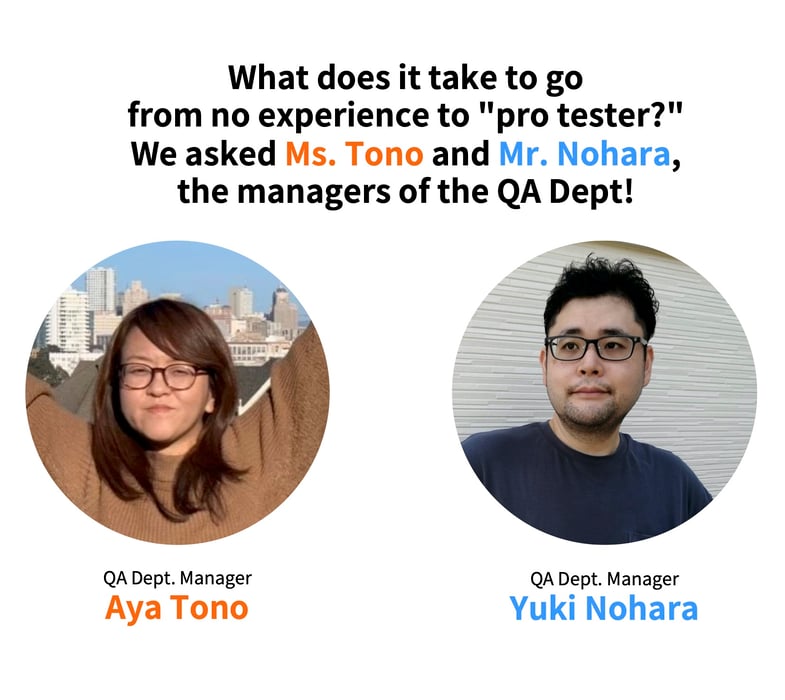
―Please tell us about the career paths for testers.
If you don't have any experience in the field, you'll start out as a contract employee performing tests that have been prepared in advance.
Once you're used to running tests, you'll participate in the creation of tests from the analysis and design stages. That's the career of a tester.
From there you can advance your career into test planning proposals or by managing overall testing processes by doing things like resource assignment. Both of these options allow you to aim for more complexity and streamlining within the scope of your responsibility. You may also be responsible for mentoring new talent.
Once you're used to running tests, you'll participate in the creation of tests from the analysis and design stages. That's the career of a tester.
From there you can advance your career into test planning proposals or by managing overall testing processes by doing things like resource assignment. Both of these options allow you to aim for more complexity and streamlining within the scope of your responsibility. You may also be responsible for mentoring new talent.
Another available career path would put you in charge of operating or managing testing departments as the manager.
If you don't have any experience, you'll have to work hard and challenge yourself to do things like independently study material related to testing work after you join the company in order to advance your career.
―What kind of study would someone need to do to improve their skills as a tester after joining the company?
Broadly speaking, I would say people need to have knowledge about testing work, services, and IT in general.
・Testing knowledge:
To gain this knowledge, testers study the thought processes related to test methodolgy and testing as a whole. The fastest way to learn is by getting testing certification from organizations like the Japan Software Testing Qualifications Board (JSTQB) or by studying systems related to test engineering.
・Service (domain) knowledge:
To provide more polished services, testers need to have knowledge or learn about trends related to the industries targeted by the relevant service (such as finance or retail), as well as our competitor apps.
・IT knowledge
Of course testers need to know about the tools used for testing work and how to use devices, but they also need IT literacy to understand the networks that form the foundation of a service, as well as how apps work and how they're developed.
Certifications like IT Passport, the Basic IT Exam, and Applied Information Technology Engineer Examination are useful for improving that literacy. Knowledge about various browsers, smartphones, and OSs are also handy to have.
Certifications like IT Passport, the Basic IT Exam, and Applied Information Technology Engineer Examination are useful for improving that literacy. Knowledge about various browsers, smartphones, and OSs are also handy to have.
Please see below for information about open positions that don't require experience! ▼
Related Articles

LINE Fukuoka Office Introduction|A Second Year Employee Introduces the WOWs Packed in the Office!
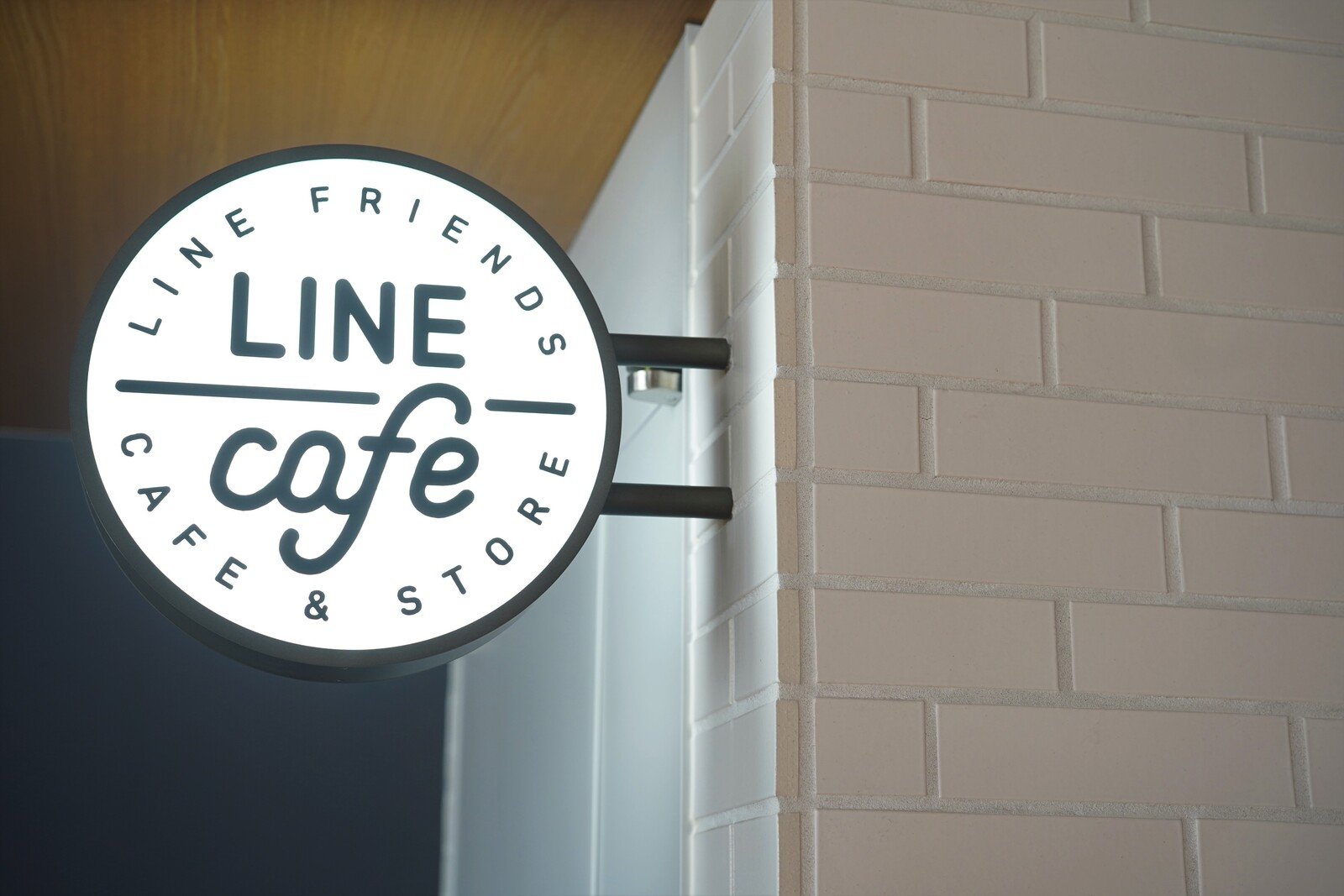
Need a Break? Head to the Cafe!
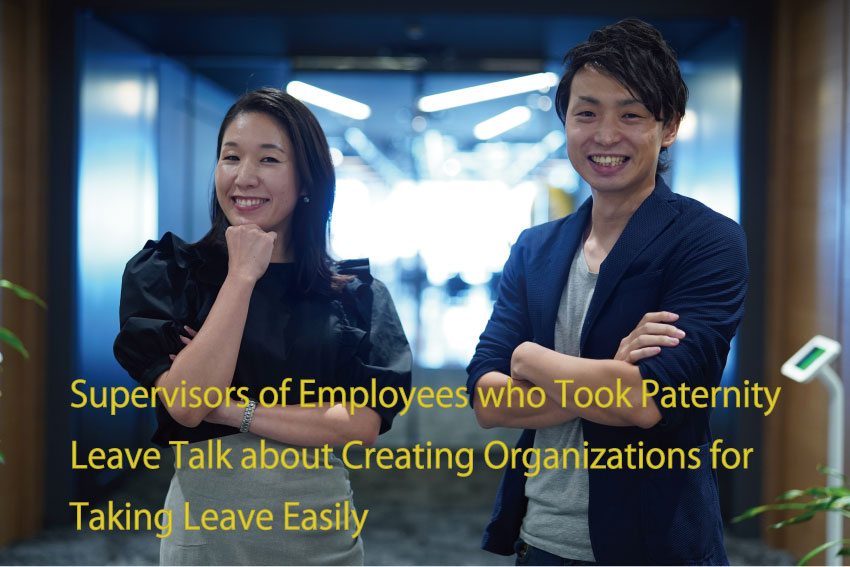
Supervisors of Employees who Took Paternity Leave Talk about Creating Organizations for Taking Leave Easily
